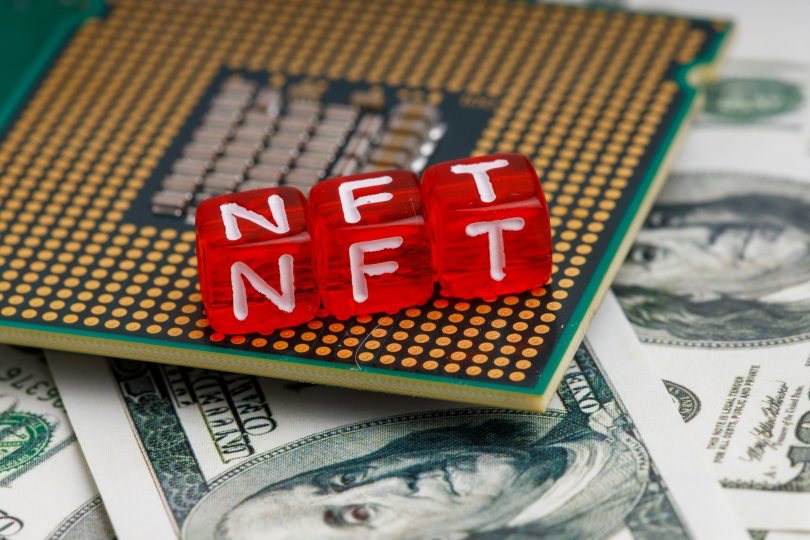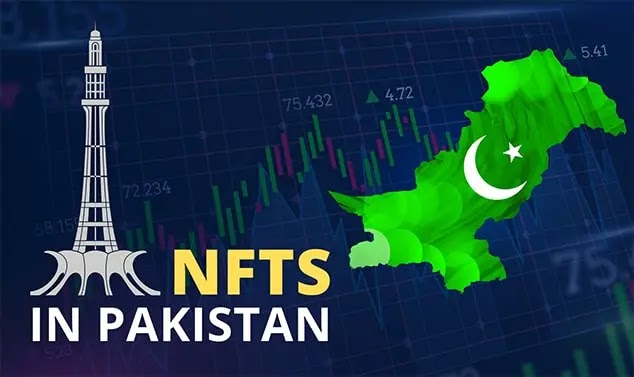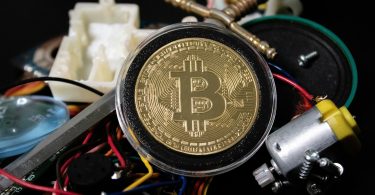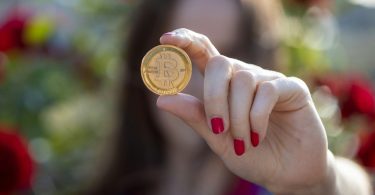In recent years, Non-Fungible Tokens (NFTs) have gained significant attention and popularity globally, and Pakistan is among the nations that have embraced this revolutionary technology. NFTs are a class of digital assets that possess unique characteristics and cannot be replicated or exchanged for an equal value. These tokens are widely utilized for the representation of digital art, collectibles, and other one-of-a-kind digital assets.
One of the most popular ways to earn from NFTs in Pakistan is by creating and selling digital art. This can be done by creating digital paintings, illustrations, animations, and other forms of digital art that can be represented as NFTs. These NFTs can then be sold on various online marketplaces that specialize in NFTs, such as OpenSea, Variable, and super rare.
Another way to earn from NFTs in Pakistan is by collecting and reselling NFTs. This can be done by purchasing NFTs from other creators or from other collectors and then reselling them for a higher price. This can be a profitable venture if you are able to find rare and valuable NFTs that are in high demand.
NFTs can also be used to create decentralized applications (dApps) and games. This can be done by creating a game or application that utilizes NFTs as in-game assets. These assets can then be bought and sold by players and can potentially be resold for a higher price.
It is important to know that NFTs are a unique and exciting new way to make money, but it is speculative. There is always a risk of losing money in any investment, so you should only invest what you can afford.
When it comes to the question of whether it is halal to sell NFTs, the answer is that it depends on the type of content being sold. If the NFT represents something that is haram, such as adult content or gambling, then it would be considered haram to sell. However, if the NFT represents something that is halal, such as digital art or other creative works, then it would be considered halal to sell.
In conclusion, NFTs are a new and exciting way to earn money in Pakistan. They can be used to create and sell digital art, collect and resell NFTs, and create decentralized applications and games. However, it is important to remember that NFTs are speculative investments and should be approached with caution. Additionally, it is important to consider the type of content being sold to ensure that it is halal. With the right approach and research, NFTs can be a profitable and halal way to earn money in Pakistan.
Is NFT available in Pakistan?
NFT, or non-fungible token is a digital asset that represents ownership of a unique item or piece of content, such as a digital art piece or collectible. NFTs are becoming increasingly popular in the art world, as they allow artists to sell digital artwork as one-of-a-kind, authenticated items.
In Pakistan, NFTs are not yet widely available, but interest in the technology is growing. Many Pakistani artists and creators are beginning to explore the possibilities of NFTs, and some have already begun creating and selling their own digital art pieces as NFTs.
However, it is important to note that Pakistan is still in the early stages of adopting NFTs, and there is currently a limited market for them. Nevertheless, as the use of digital currencies and blockchain technology continues to expand in Pakistan, it is likely that NFTs will become more widely available and accepted in the near future.
Overall, NFTs offer exciting new opportunities for artists and creators in Pakistan to monetize their digital works and build a new market for digital art. If you are an artist or creator in Pakistan, it may be worth exploring the use of NFTs as a way to sell your work and gain exposure.
Is buying NFT legal?
Buying NFTs (non-fungible tokens) is legal as long as the transaction is conducted through a legitimate marketplace or platform. NFTs are digital assets that can represent ownership of a unique item such as artwork, music, or videos. They are created using blockchain technology, which ensures that each NFT is unique and cannot be replicated.
Purchasing NFTs is similar to buying any other digital item, such as music or e-books. It is important to ensure that the marketplace or platform you are buying from is reputable and that the NFT you are purchasing is authentic. Many platforms have built-in security measures to prevent fraud and protect buyers.
NFTs are becoming increasingly popular as a way for artists, musicians, and other creators to monetize their work. They allow creators to retain ownership of their digital assets and control how they are used. They also provide a way for buyers to own a unique piece of digital content, something that is not possible with traditional digital items.
In conclusion, buying NFTs is legal as long as the transaction is conducted through a legitimate marketplace or platform. It is important to ensure that the platform is reputable and that the NFT is authentic, so you can rest assured that your purchase is legal and safe. NFTs are an exciting new way for creators to monetize their work and for buyers to own unique digital assets.
Which NFT is halal?
NFTs, or non-fungible tokens, are a type of digital asset that is unique and cannot be replicated or exchanged for an equal value. They are often used to represent things like artwork, collectibles, and other items of value. However, not all NFTs are considered halal, or permissible under Islamic law.
One type of NFT that is considered halal is one that represents physical assets. For example, an NFT that represents a piece of artwork or a collectible item that is physically held by the creator or owner is considered halal. This is because the value of the NFT is tied directly to the physical asset and is not based on speculative or speculative activities.
Another type of NFT that is considered halal is one that is used for charitable purposes. For example, an NFT that is used to raise funds for a charitable organization or cause is considered halal because the proceeds from the sale of the NFT are used for a good cause.
However, NFTs that are used for speculative or gambling purposes are not considered halal. This includes NFTs that are used for trading or gambling on the value of digital assets, as well as NFTs that are used to represent virtual items or in-game items.
It is important to note that the determination of whether an NFT is halal or not is based on the specific circumstances and use of the NFT. It is always best to consult with a qualified Islamic scholar or financial advisor before making any decisions regarding NFTs.
In conclusion, NFTs can be halal if they represent physical assets or are used for charitable purposes, but not if they are used for speculative or gambling purposes. It’s always important to seek advice from an Islamic Scholar or financial advisor before making any decisions regarding NFTs.
Is Bitcoin halal in Islam?
The question of whether or not Bitcoin is halal, or permissible under Islamic law, is a topic of debate among Muslim scholars. Some argue that it is permissible as long as it is used for legitimate and lawful purposes, while others argue that it is not permissible due to its association with illegal activities and lack of regulation.
One argument in favor of Bitcoin’s permissibility is that it can be used for lawful transactions, such as buying goods and services or sending money to family members. Additionally, the decentralized nature of Bitcoin allows for financial transactions to occur without the involvement of traditional financial institutions, which may not always abide by Islamic principles.
On the other hand, some argue that Bitcoin’s association with illegal activities, such as money laundering and drug trafficking, makes it impermissible. Additionally, the lack of regulation in the Bitcoin market can lead to volatility and potential losses for investors, which is not in line with Islamic principles of risk management.
In conclusion, whether or not Bitcoin is halal under Islamic law is a matter of debate among Muslim scholars. While some argue that it is permissible for lawful transactions, others argue that its association with illegal activities and lack of regulation make it impermissible. Ultimately, it is up to individuals to make their own informed decision based on their understanding of Islamic principles and the risks involved.
How expensive is an NFT?
NFTs, or non-fungible tokens, are unique digital assets that can be bought and sold on blockchain marketplaces. The price of an NFT can vary greatly depending on the specific piece and the artist or creator behind it. Some NFTs have sold for millions of dollars, while others may only be worth a few hundred dollars.
One of the main reasons for the wide range of NFTs is that they are created by artists such as musicians, photographers, etc. Each of these artists has its own unique reputation. A well-established artist with a strong track record of creating successful NFTs is likely to have higher-priced pieces than a lesser-known creator. Additionally, the medium of the artwork, the rarity of the piece, and the uniqueness of the artwork are also factors that can affect the price.
Another reason for the range in prices is that NFTs are a relatively new market, and the prices of pieces can fluctuate greatly based on demand and market sentiment. Some NFTs have sold for exorbitant prices during a hype cycle, only to see their value drop significantly in later sales.
Overall, the price of an NFT can be quite expensive, but it can also be quite affordable. It really depends on the specific piece and the reputation of the artist or creator behind it. If you are interested in buying an NFT, it’s important to do your research and understand the market before making a purchase. Whether you’re a collector or an artist, NFTs offer a way to own a unique piece of digital art that can appreciate in value over time.
Can free NFTs make money?
Free NFTs, or non-fungible tokens, have become increasingly popular in the digital art world. These unique digital assets can be used to represent anything from digital art to virtual real estate. But can they make money? The answer is yes!
One way that free NFTs can make money is through the secondary market. As the demand for NFTs increases, the value of these digital assets can also rise. This means that those who own free NFTs can potentially sell them for a profit. Additionally, some artists and creators may choose to include royalties or other income streams within the terms of their free NFTs, allowing them to make money even after they’ve given the NFT away for free.
Another way that free NFTs can make money is through advertising and partnerships. As the popularity of NFTs continues to grow, businesses and brands may be interested in partnering with creators and artists to promote their products or services through NFTs. This can result in significant income for the creators and artists involved.
Finally, free NFTs can also make money through a concept called ‘staking’. This is a process where users can hold their NFTs in a specific wallet, and earn rewards such as discounts, bonuses, or premium access.
Overall, there are many ways that free NFTs can make money. Whether it’s through the secondary market, partnerships, or staking, these digital assets have the potential to be highly profitable. As the NFT market continues to evolve and grow, it’s likely that new and innovative ways to make money with free NFTs will emerge.
Are NFTs easy money?
NFTs, or non-fungible tokens, have been making headlines in recent months as a new way for creators to monetize their digital assets. But are they easy money? The answer is not so simple.
On one hand, NFTs can provide a new revenue stream for artists, musicians, and other creators who have been impacted by the shift to digital content. With NFTs, creators can sell their digital assets as one-of-a-kind, unique items that can’t be replicated or duplicated. This allows them to monetize their work in a way that wasn’t possible before.
On the other hand, NFTs are a highly speculative market and there is no guarantee that an NFT will appreciate in value. The market for NFTs is still relatively new and is not regulated, which means that there is a high risk of scams and fraud. Additionally, the environmental impact of NFTs has been criticized, as the process of creating and trading NFTs requires a significant amount of energy.
Overall, NFTs are a very important and interesting way to monetize your assets, but it can’t be taken lightly, as with any investment, do your research and understand the risks involved before getting into this business. It is very important.














